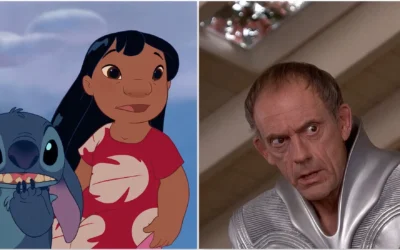Lori Vallow Daybell Convicted in Second Murder Conspiracy Case
In a dramatic turn of events on Tuesday, Lori Vallow Daybell was found guilty in her second murder conspiracy case in Arizona, marking a significant moment in a series of legal battles that have captured national attention. Her conviction, stemming from charges related to an alleged plot to murder her fourth husband, adds a new layer of complexity to a saga that has transfixed the public and highlighted the intricacies of the American legal system.
A Timeline of Tragedy and Intrigue
Lori Vallow Daybell, the mother of two children, was initially thrust into the spotlight following the mysterious disappearances of her children, Tylee Ryan and JJ Vallow, in late 2019. This incident led to nationwide searches, media coverage, and growing concerns about the safety of the children. In June 2020, their remains were discovered in the backyard of Lori’s new husband, Chad Daybell, a self-proclaimed prophet.
In the wake of the discoveries, Lori faced multiple charges, including conspiracy to commit murder. The complexities of the case deepened with each trial. Her first trial focused on the conspiracy to murder her children, while the second involved allegations regarding her husband’s former wife, Tammy Daybell, who died under suspicious circumstances.
Details of the Conviction
The trial that culminated in Lori’s conviction took place over several weeks, featuring testimonies from various key witnesses, including friends and family members. The jury deliberated for several days before reaching a verdict, which has been described as a watershed moment not just for the Daybell case itself but across the entire legal landscape.
During the proceedings, the evidence presented was as varied as it was troubling. Prosecutors portrayed Lori as a woman driven by a dangerous and delusional belief system that led her to view her children and her husband’s former wife as obstacles to her newfound ideals.
Defense attorneys, on the other hand, argued that Lori was a victim of circumstance and that the evidence against her was circumstantial at best. Nevertheless, the jury ultimately sided with the prosecution, resulting in a guilty verdict.
The Reaction and Its Implications
The verdict has sparked intense reactions from various quarters. For many families affected by similar tragedies, Lori’s conviction represents a semblance of justice. The families of the victims expressed gratitude toward the justice system, hopeful that the verdict would bring some closure to their suffering.
However, the case has also elicited criticism over the handling of evidence and the potential influence of media coverage on jury deliberations. Legal experts have pointed out that high-profile cases such as this often face scrutiny regarding the integrity of the judicial process.
Looming Overhead: The Third Trial
As if the weight of her previous convictions weren’t enough, Lori Vallow Daybell now faces yet another trial—her third trial in a series of legal efforts stemming from the tragic circumstances surrounding her life. This upcoming trial is expected to nail down the specifics of her alleged involvement in the conspiracy to commit murder against her children, as well as tackle any remaining evidence related to the death of Tammy Daybell.
Observers are keen to see how the dynamics of the previous trials will play out in this new setting. Many legal analysts believe that if Lori is convicted again, it could serve to solidify a precedent in cases involving conspiracy and murder that could influence other trials across the nation.
Public Fascination and Media Coverage
One of the most talked-about aspects of the Lori Vallow Daybell saga is the media’s intense focus on her life and trials. Court TV and other news outlets have closely followed each development, offering a steady stream of content that caters to a public captivated by suspenseful and tragic narratives. This level of coverage has led to discussions about ethical implications for both the media and the justice system.
The public’s fascination continues, largely stemming from the complex interplay of family dynamics, faith, and psychological elements that have come to define this case. Social media platforms and online forums are abuzz with opinions, theories, and even amateur sleuthing that attempts to piece together the fragments of a woman’s life that appears to oscillate between a tragic tale and a chilling murder mystery.
The Wider Effects of the Trials
As more details emerge from Lori’s trials, many are pondering the implications beyond the immediate cases. What does this mean for mental health awareness, especially in contexts where individuals become radicalized by specific belief systems? And how should legal systems handle cases that garner disproportionate public attention?
Victim advocacy groups have begun using Lori’s case as a platform to push for stronger laws and protections for vulnerable individuals, particularly those who may be at risk of being manipulated by delusional belief systems or harmful ideologies.
Conclusion
The conviction of Lori Vallow Daybell in her second murder conspiracy case is not merely another headline; it is a critical juncture in a series of events that have raised essential questions about justice, morality, and the very nature of family relationships. As she prepares for what could be her most consequential trial yet, the public, media, and legal experts alike will be watching closely, eager to see how this story unfolds further.
The impact of these trials will resonate long after the gavel falls, shaping discussions around mental health, legal ethics, and, most importantly, justice for those who cannot speak for themselves.







